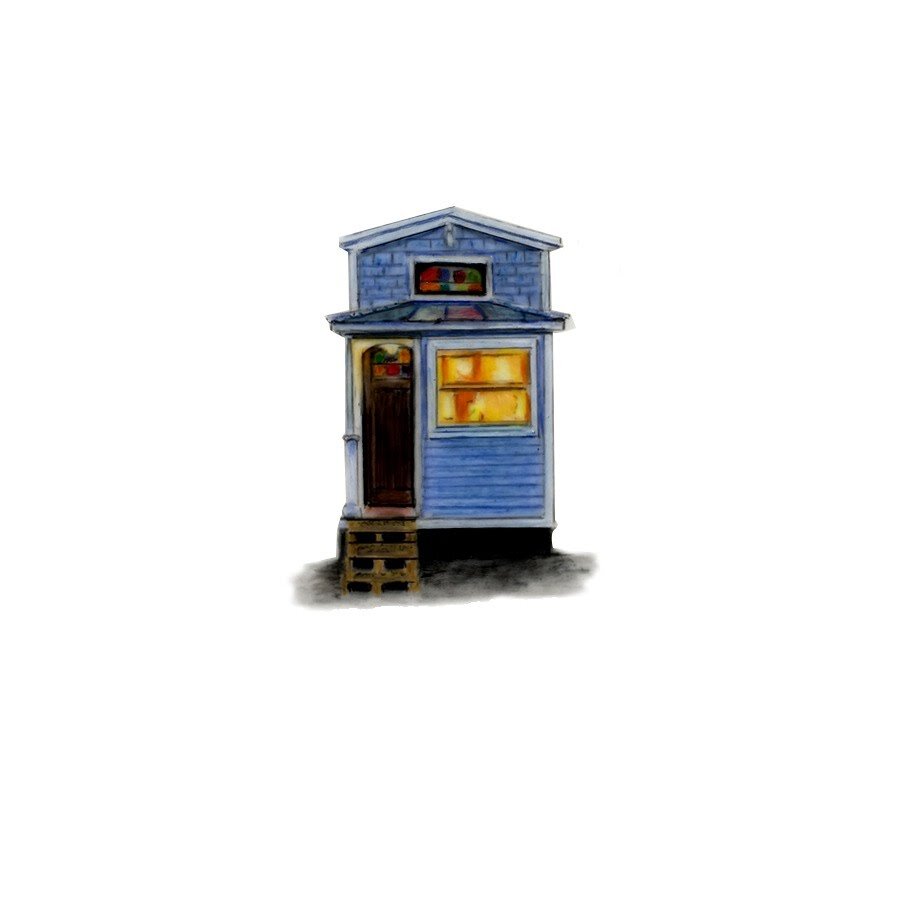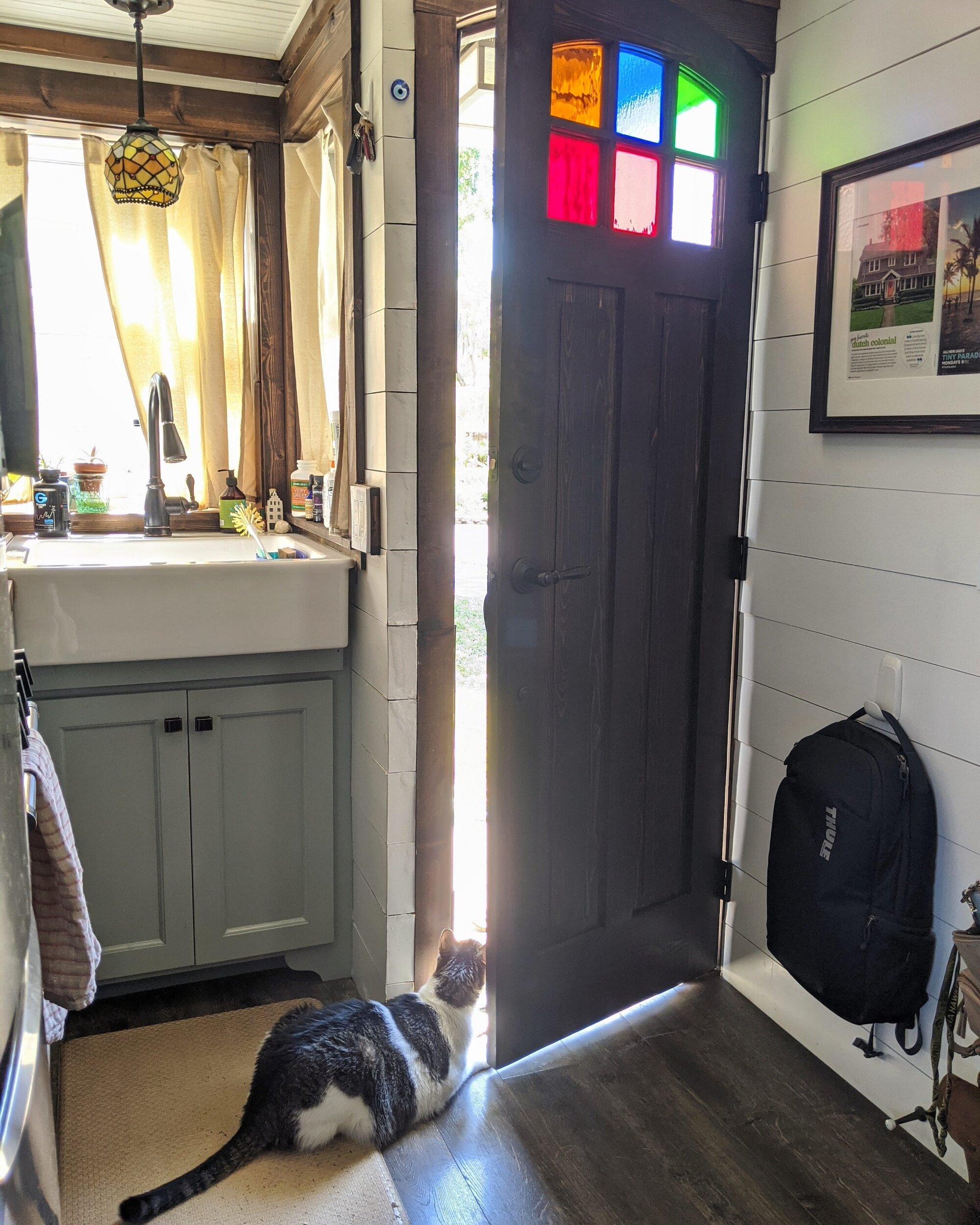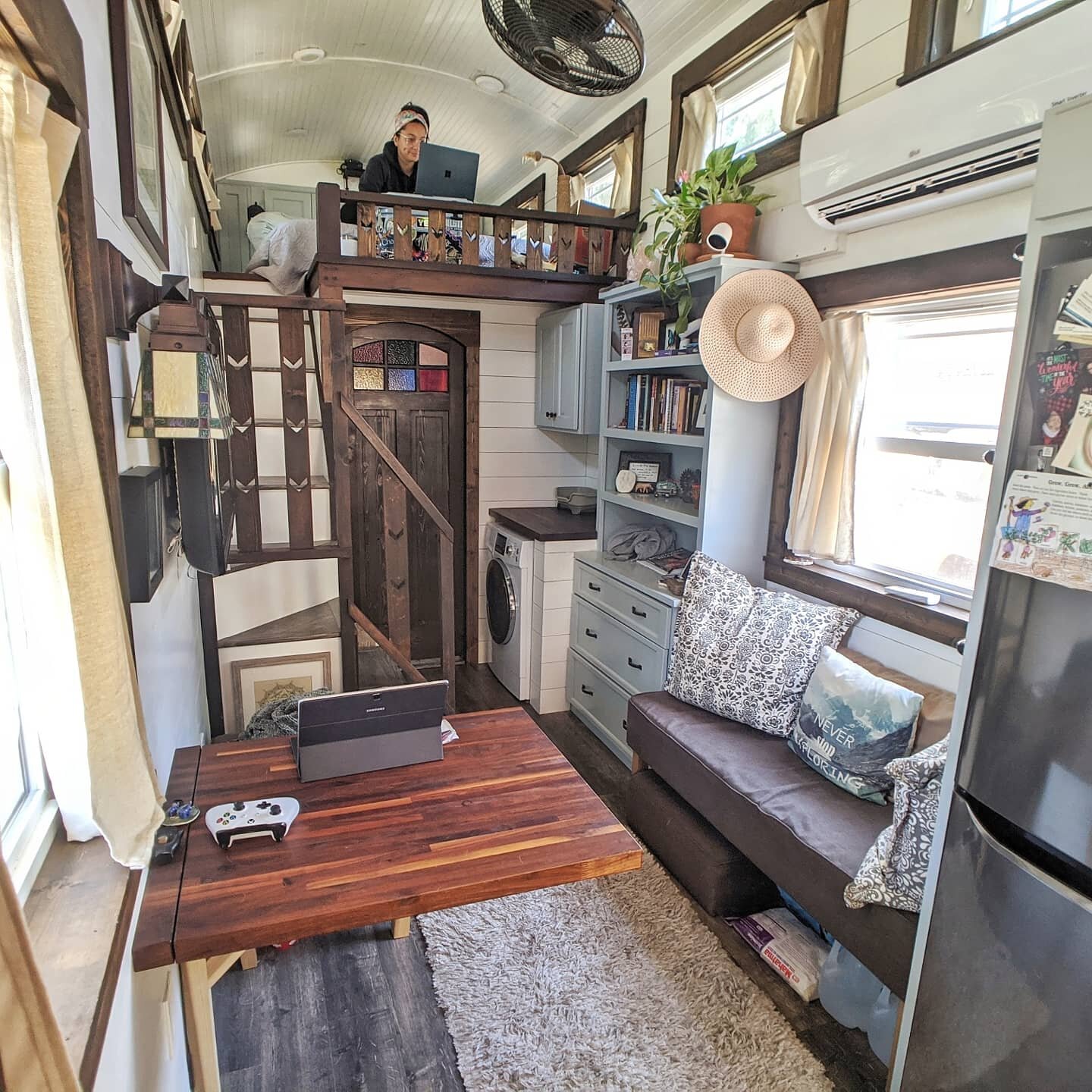5 Critical Things I Wish I Knew Before Buying a Tiny House
Let’s face it, going tiny is not an easy process. You have to slim down your life and it’s a huge change. There are so many options for buying a tiny home now: tiny home on wheels, tiny house on a foundation, schoolies (#buslife), vans, RV’s, cabins, tiny park models, prefab tiny homes. Do you buy new? Do you buy used? Do you build your own? Where/who do you buy it from? There are a lot of bumps one can experience while navigating these.
I ask myself after a bump or hiccup in an experience, “What did I learn from this?". Here's a couple of things I found out about purchasing a tiny house on wheels (Tiffany The Tiny Home) and a tiny home on a foundation (Shellmate Island)
1. Everything Should be in Writing, Especially in a Custom Tiny Home
When making any type of large purchases this is a good practice but buying a tiny home it's even more critical. The tiny house community is a fairly new thing with all the hype going around it over the last 5-10 years. This means a lot of businesses can be fairly new, in all relativity, and this is when those businesses try their business plans and/or work the kinks out on something so new, such as a tiny home.
When someone is bidding out their job or writing a quote up for you, they try to calculate what everything is going to cost them and what margins they are going to make on the project. Now, this is pretty straight forward if you work with someone that gives you “X” amount and there is no customization in the product, but with custom tiny houses there are so many options to choose from and sometimes they bid wrong and require the deadly words “change order”.
I love having everything in writing. I learned this from my brother Ryan. If it's not in writing then it leaves things open for both parties and with too much flexibility it could become a game of he said she said. If something happens and unfortunately becomes serious, having things in writing will help you in the long run, for both parties involved.
Things to have in writing:
What is covered under warranty? Tiny home blueprints of some kind. Time frames on things and completion of the home. Are there delivery fees for your tiny home if it’s movable? A proper invoice with a break down of all fees for any type of money transaction for the tiny house plans. Conversations about what comes with the home and include cost per item. Discussion of wants and needs in your tiny house
2. Tiny House Floor Plans and Blueprints
I work with a lot of homes and buildings in my field of work. We design lighting layouts based on the blueprints and floor plans. It’s a huge benefit in owning a home let alone a tiny home. If people are trying to make this another option of living then some of the same standards of a traditional should be in place in our community.
I can think of two big reasons tiny house floor plans and blueprints are a great thing to have.
First, it shows that someone has taken the time out to plan out where everything is installed in your structure such as electrical, plumbing, pipes along with calculations and measurements to make sure things will fit and function properly. They have thought about this thoroughly and are not just going to wing it. This is also helpful in case you need to install/repair something in your tiny house. You’ll know where things are running in the tiny home floor plan. A. This makes the builder a bit more professional. B. This is a great thing to have as a homeowner of whatever unique structure your buying.
Secondly, typically blueprints are drawn out by an architect or engineer to make sure the home is structurally sound. This is common on any other structure you live in and should be a standard with tiny homes becoming more and more popular, just like traditional homes are. We've all heard of some horror stories of some tiny homes not built well and although it requires additional cost, the safety is worth the price for tiny house floor plans. Safety should be the number one priority in your home in my opinion. Remember you are living in this, don't you want to make sure the tiny house floor plans and structure are engineered properly?
3. Does Your Tiny House Come With Any Type of Warranty?
This is often overlooked but is important to understand. This needs to be professionally written down for your tiny home. I’ve made the mistake twice now and am kicking myself on it and would have been helpful for a couple of issues. What will be in the warranty coverage for the tiny house? Well, that’s rightfully up to what the tiny home builder wants. It could be just an appliance or just workmanship. Who contacts the manufacture if the appliance breaks? In my opinion, if you bought the home from a builder, they should call the manufacturer and take care of it. The amount of time frame on repairs should be in writing also. One should not wait three months for a repair, it should be something reasonable for both parties.
Not all homes come with an extensive warranty and that’s alright, but its important to know before the purchase to understand the situation you're getting yourself into and have no confusion on it.
4. Check Past Work/Tiny House Builds
Now for our case, this was the builder’s first tiny home built for our tiny house on wheels (Tiffany) for sale so we couldn't do this, but we had seen past small projects like renovations ect. Our second tiny house on a foundation (Shellmate Island) our general contractor had past work we could look at and understand what kind of craftsman and quality of work we were going to get. Why would you do this? Well, the number one push for buying things nowadays are customer reviews. What are past buyers experience? How did they handle issues? Are they a new business or a business with some past history? And cash flow, when things go wrong they can stand behind the warranty and things they offered.
There’s nothing wrong with asking for the past three jobs and references if you’re working with builders or contractors. I did this with anyone that I was taking their bid seriously on larger $ items. It’s a very easy and small thing to ask for and If they couldn’t provide that information to me they were automatically off the list as I felt they might not want me to know some things.
5. Plan On Being Over-budget For Your Tiny House
I touched on this topic in the article ”5 things I learned so far about building a Tiny House on Foundation for Shellmate Island” and I think it’s that important to talk about again. I get made fun of quite often by my family and friends on how cheap I can be and I was still over budget. I financially planned to be able 1/3 over any budget I had in place for the tiny house on a foundation and it actually was a great decision. A lot of the time we can guess what we think things will cost on jobs we really don’t know much about, which is why we hire someone to do it in the first place, and we underestimate it. This could because of the workforce in your area, cost of material, and/or the amount of time it’s going to take to complete the job, or maybe you want a slight upgrade. It being a tiny house, most contractors have not worked on one so they might bid high to make sure they don’t lose money on the job. It’ts just part of the process of bidding things out for a tiny home. It’s critical to plan for this or you might find yourself in a financial situation you can’t do anything about and the whole tiny house project could go on pause. Best case, you have over-budgeted and have a little extra cash that you can use as you will.
Now double, scratch that, triple check you did these things over and over again. It can only benefit your tiny house plans and journey.
Now don't take this the wrong way, we didn't make a wrong decision by any means on our tiny homes. But it was a new experience for us and I am a huge believer of you can learn from any situation. I learn from it and I am a smarter person going into the next similar situation. Finally, these are a couple of things we've learned on our journey of purchasing our homes, let alone a tiny house and I hope it helps you.



